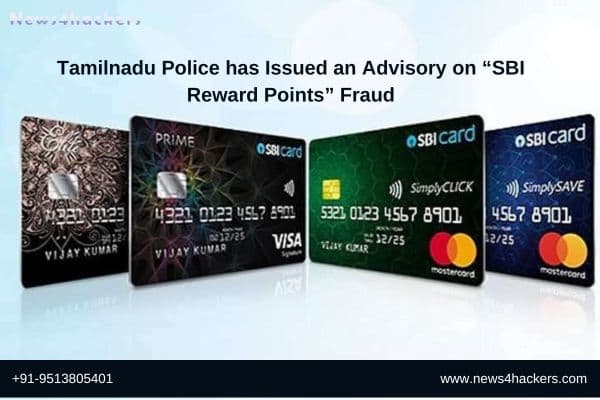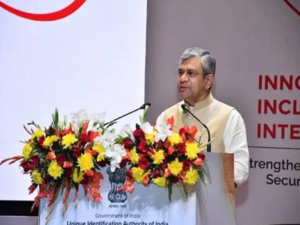Tamilnadu Police has Issued an Advisory on “SBI Reward Points” Fraud

Tamilnadu Police has Issued an Advisory on “SBI Reward Points” Fraud
According to Additional Superintendent of Police (Cyber Crime) S. Prabhakaran, hackers utilize compromised social media accounts, such as WhatsApp, to distribute fraudulent communications regarding “SBI Reward Points.”
Cuddalore, Tamilnadu: A new cyber scam known as the “SBI Reward Points Scam” has been brought to the attention of the Cuddalore district police by the Cyber Crime wing, which has issued an advisory report.
Hackers have allegedly utilized social media accounts that have been compromised, including WhatsApp, in order to send fraudulent messages concerning “SBI Reward Points,” as stated by S. Prabhakaran, who is the Additional Superintendent of Police for Cyber Crime.
In the event that the hackers are successful in gaining access to a social media account, they will next post fabricated messages concerning SBI Reward Points to the official and personal groups of the victim. As a result of the fact that the communications contain emblems and names that state “State Bank of India,” they give the impression of being genuine.
Links that purport to assist victims in updating their bank information and redeeming their “SBI Reward Points” are included in the fake messages. The victims are prompted to download an Android Package (APK) file when they click on the link that is contained within the message.
A file that pretends to be an official program or update pertaining to SBI reward points is really disguised as such. Malware is installed on the device without the victim’s knowledge when they download and install the Applications Package (APK) file. This malicious software has the capability to steal sensitive information, such as account credentials, passwords, and one-time passwords.
A warning was issued by the police to the general public to exercise caution when receiving communications from unknown contacts or unexpected messages from known contacts, particularly those messages that contained links or requests for personal information.
Additionally, the alert urged the general public to refrain from clicking on links that appeared to be suspicious and to never download APK files from unknown sources. According to what was stated, you should always check official sources to ensure that any website or program you use is genuine.
About The Author:
Yogesh Naager is a content marketer who specializes in the cybersecurity and B2B space. Besides writing for the News4Hackers blogs, he also writes for brands including Craw Security, Bytecode Security, and NASSCOM.








